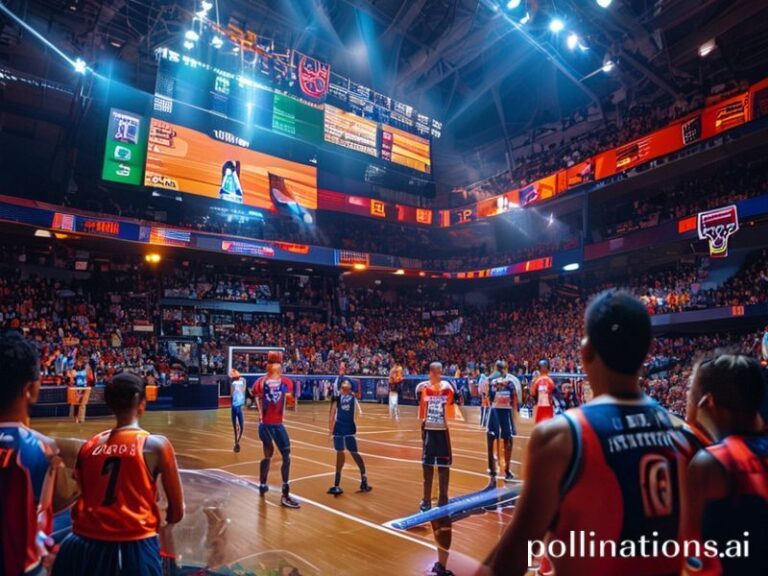Watford FC: The World’s Most Honest Metaphor for 21st-Century Chaos
Watford FC: The Global Metaphor Nobody Asked For
By Our Man at Vicarage Road, Nursing a Lukewarm Pint of Doom
From the air, Vicarage Road looks like a Lego set assembled by someone who lost the instructions in 1922. The stands are haphazard, the floodlights lean like bored sentries, and the surrounding sprawl of London commuter belt could pass for any satellite suburb from Lagos to Lahore—same glassy retail parks, same vape shops promising freedom in 20 mg increments. Which is precisely why Watford FC, the perennial yo-yo with a hornet on its chest, has become a strangely useful synecdoche for the 21st-century condition: permanently teetering, financially leveraged to the eyelids, and somehow convinced that branding can replace gravity.
Let’s zoom out. In the macro-economy of football, Watford occupies the same niche as Portugal in the EU: small, charming, occasionally brilliant, yet structurally doomed to export its best talent to bigger neighbors. Richarlison, Sarr, Doucouré—each sold off like prized goats at a Pashtun bazaar, the proceeds funneled into the next tranche of “undervalued” prospects scouted via Wyscout and WhatsApp voice notes. It’s a supply-chain as global as cobalt mining, only with slightly better dental plans.
The Pozzo family, Watford’s Italian owners, pioneered the multi-club ownership model that now stretches from Granada to Udinese like a rosary of diminishing returns. On paper it’s vertical integration; in practice it resembles laundering footballers through jurisdictions the way tech firms route profits through Dublin. The fans, meanwhile, are asked to believe that relegation is merely a “strategic realignment year,” the sporting equivalent of a corporate off-site in Phuket.
This season the Hornets find themselves mid-table in the Championship—English football’s middle-management floor, where the coffee is instant and the existential dread is artisanal. Yet even here, geopolitics intrudes. Shirt sponsor Stake.com, an online casino headquartered in a Melbourne serviced office but legally domiciled in Curaçao, reminds supporters that their despair is being arbitraged across time zones. When Watford scores, a blockchain somewhere pings; when they concede, a micro-influencer in Manila pockets 0.004 Bitcoin. The beautiful game, now settling in real time.
International observers often ask why anyone still bothers. The answer lies in the demographics: Watford’s catchment area is a petri dish of post-colonial London. On any given Saturday you’ll hear Yoruba curses, Polish lullabies, and estuary English blended into a single roar of disappointment. The club functions as a civic pressure valve, allowing 20,000 people to scream in unison rather than at each other—an integration program cheaper than any government scheme and only marginally less effective.
Of course, the Premier League looms above like a Gulf-owned Sword of Damocles. Promotion promises £100 million of TV lucre, parachute payments, and the right to be thrashed on NBC’s brunch slot. Relegation, conversely, means selling the training-ground espresso machine on eBay. Watford’s oscillation between these states has become so routine that bookmakers now offer odds on whether they’ll sack the manager before the stadium PA finishes announcing him. The last coach lasted eleven games; the kit man has longer tenure.
Still, there’s something grimly admirable about the club’s commitment to entropy. While nation-states erect trade barriers and crypto bros promise decentralized utopias, Watford continues to demonstrate that the true global constant is glorious, predictable failure. Their 2021-22 Premier League campaign featured 15 managers if you count interim Instagram takeovers, and a defensive record that could be used in Guantánamo interrogations. Yet the following season saw record shirt sales in Thailand, proving that schadenfreude scales.
As the world hurtles toward climate collapse and TikTok diplomacy, Watford FC stands as a comforting reminder that some things—tax-accountant away strips, 94th-minute equalizers conceded to Stoke—remain reliably absurd. The universe may be expanding, but the gap between ambition and reality is forever 90 minutes plus stoppage time.
In the end, supporting Watford is less a pastime than a low-stakes rehearsal for the disappointments ahead. And if that isn’t worth a £35 ticket, a £6 pie, and the slow erosion of the soul, then frankly, what is?







